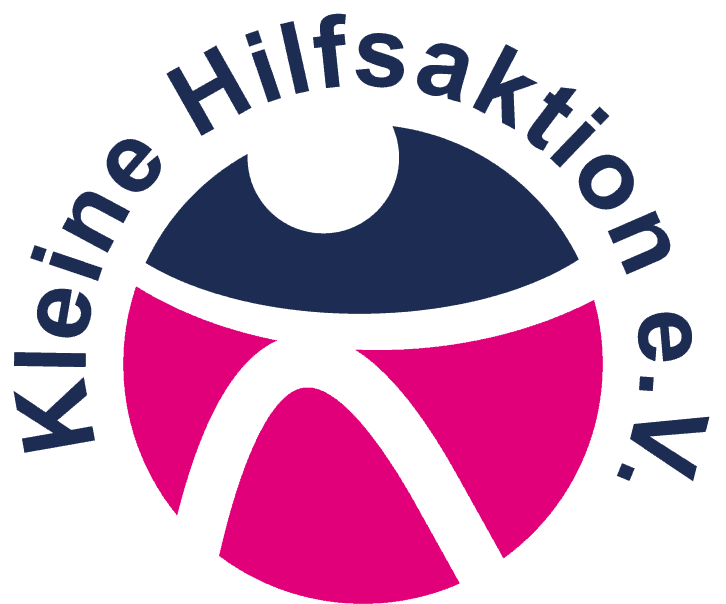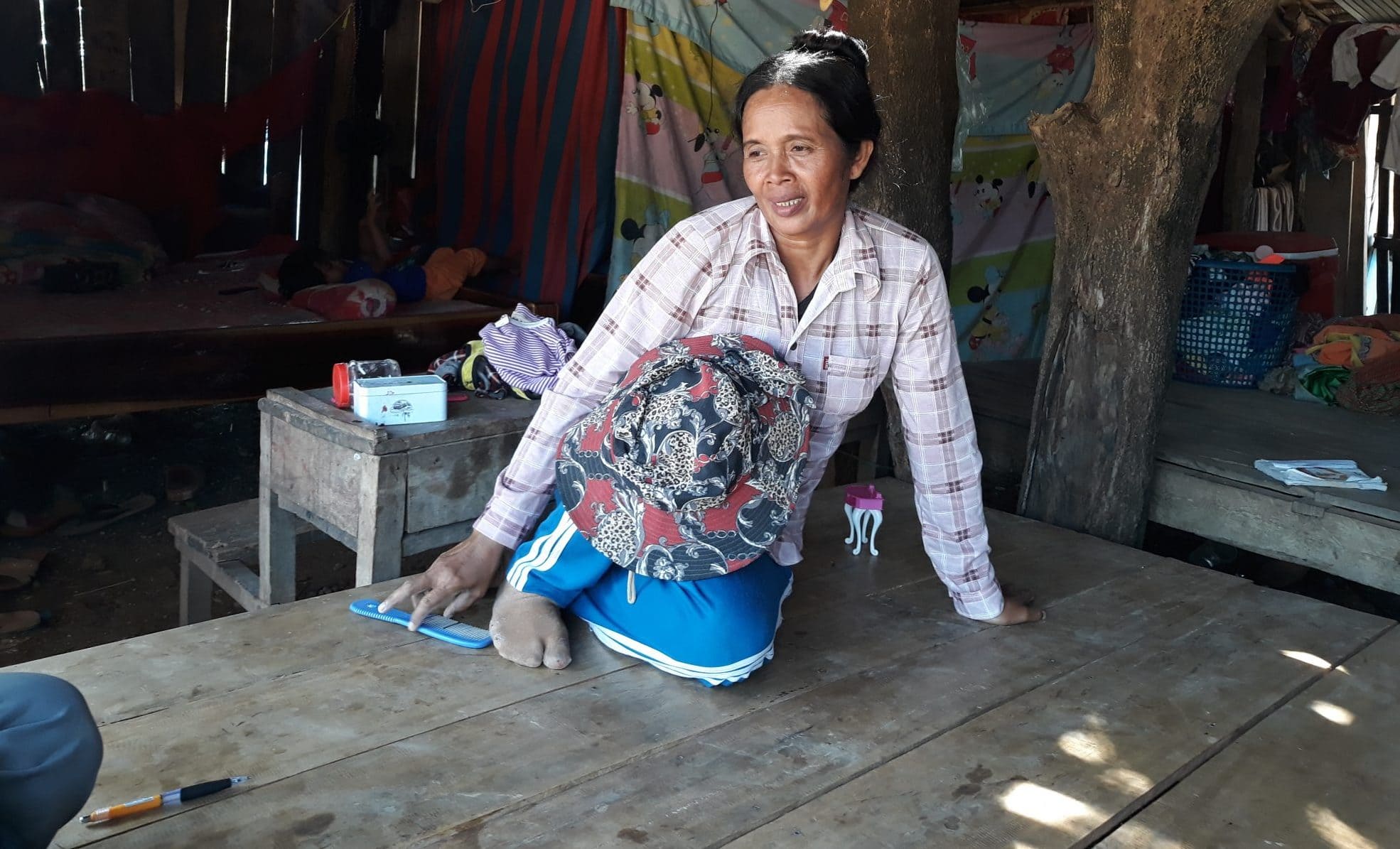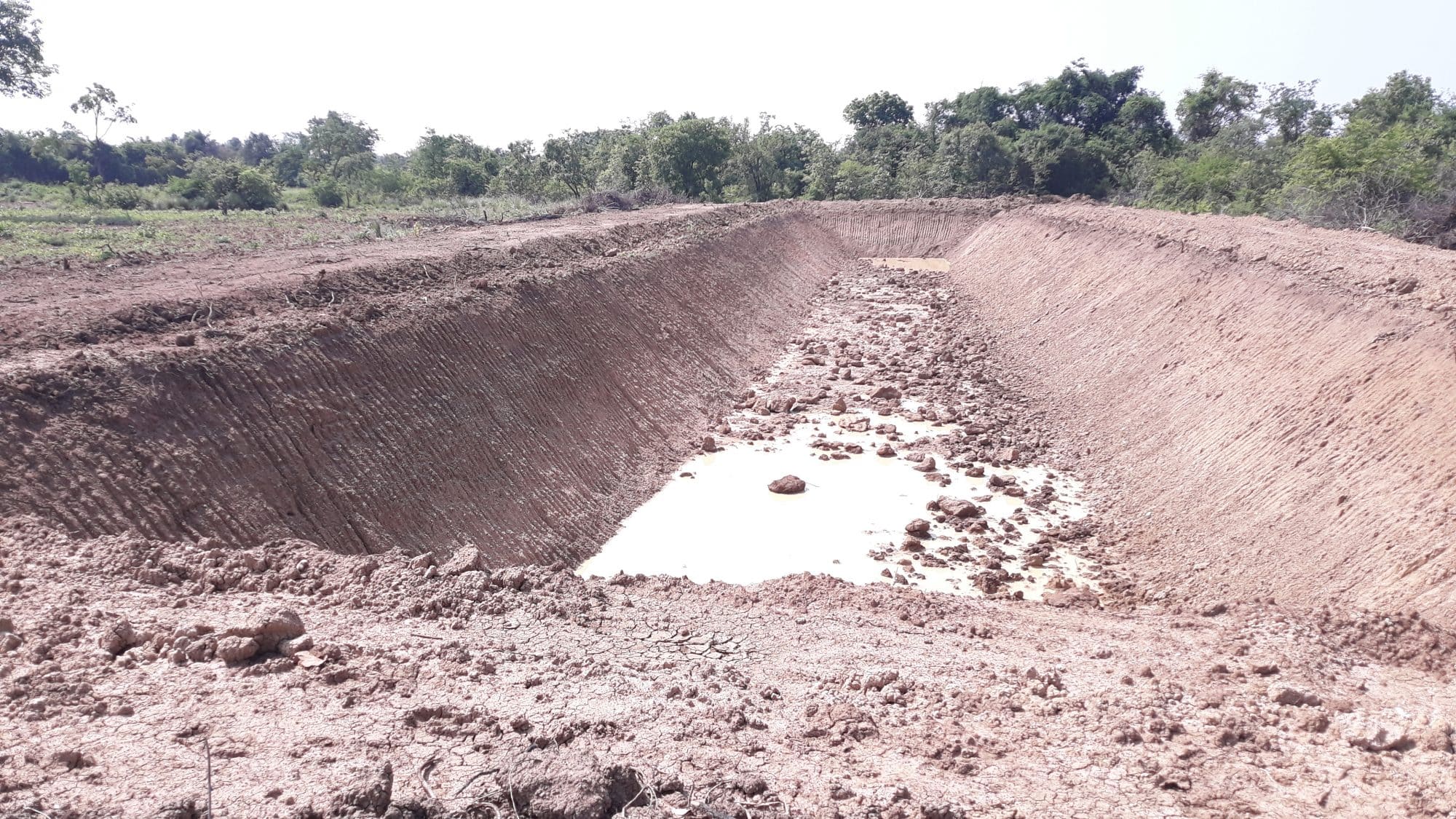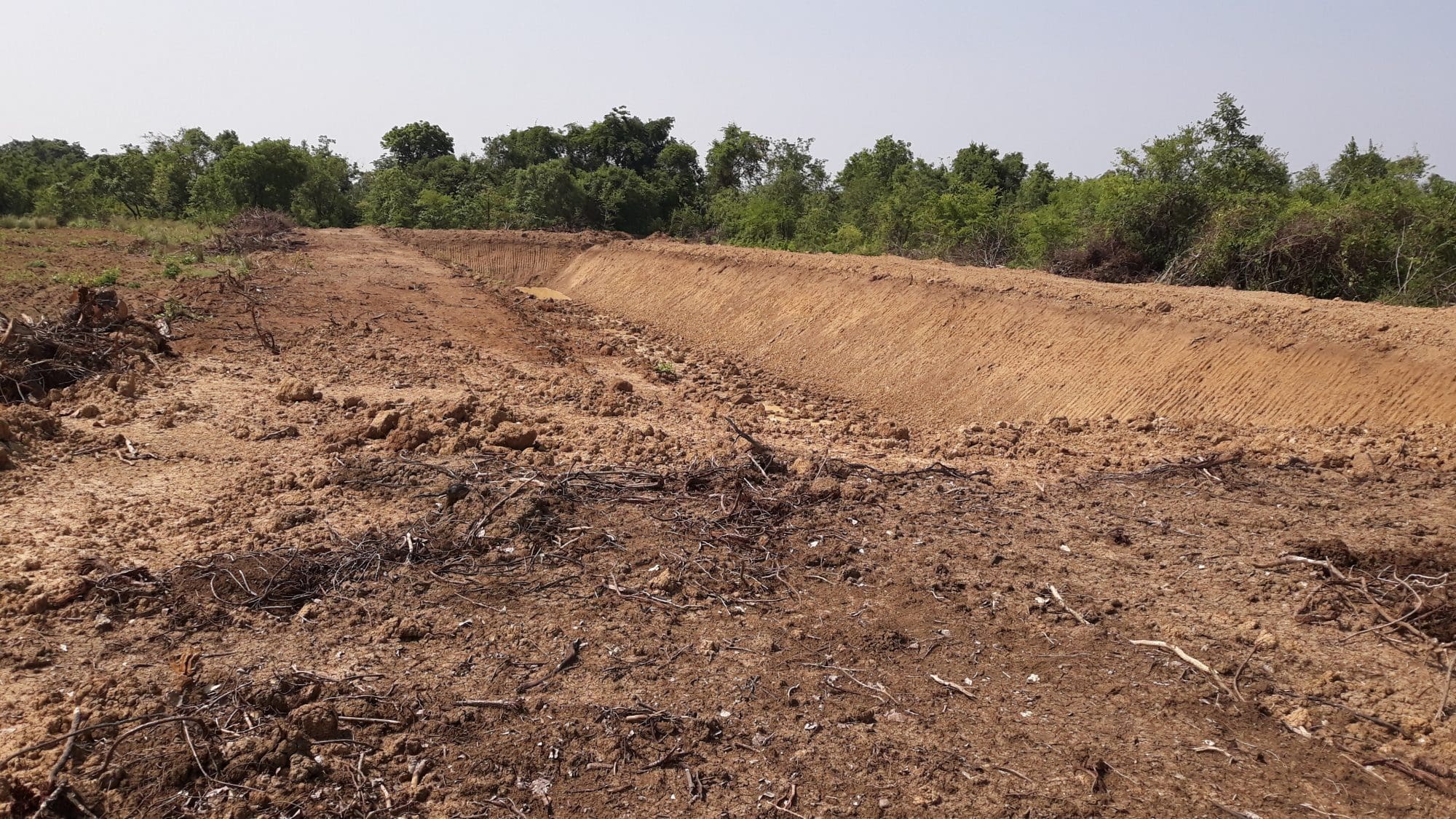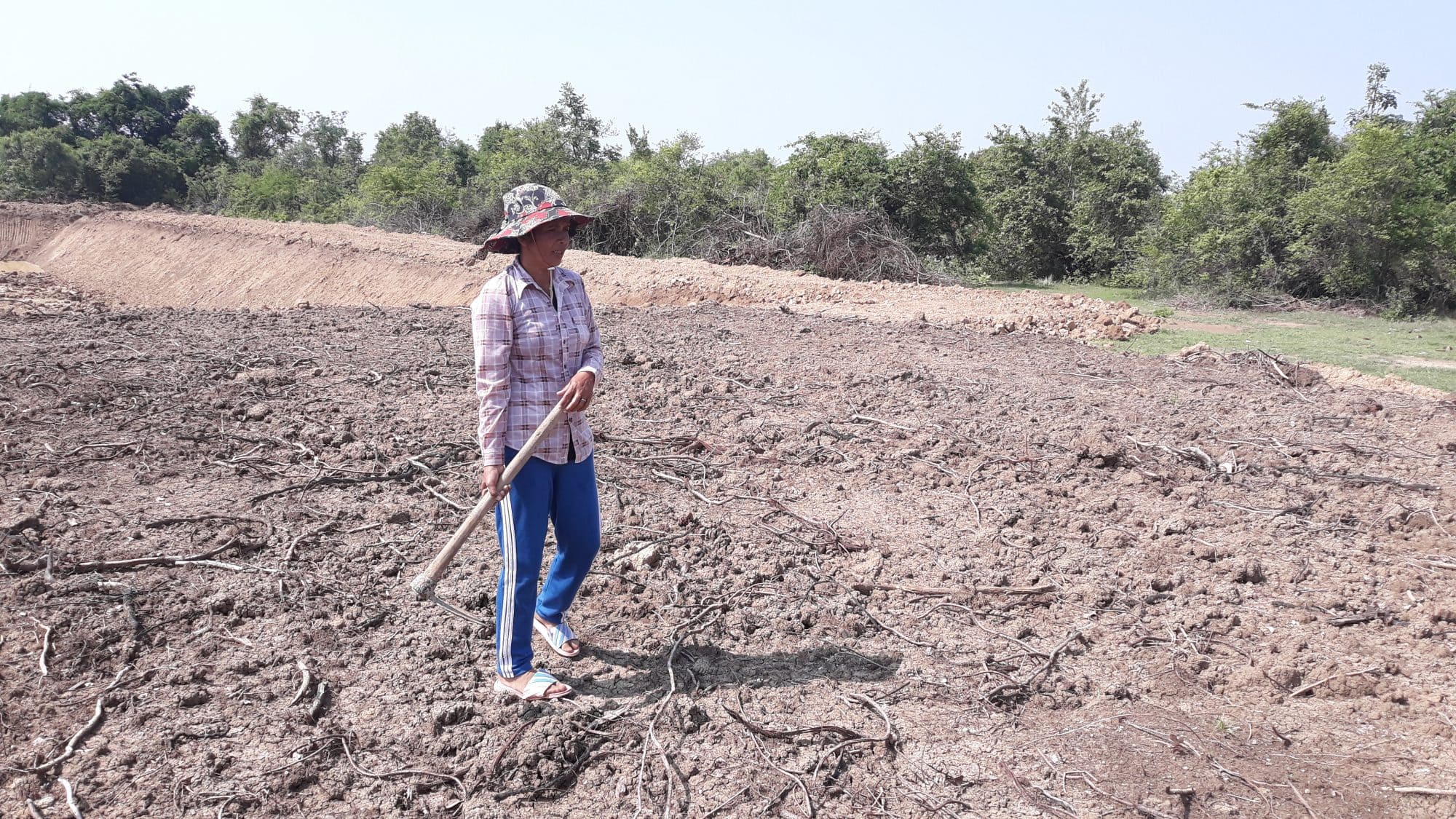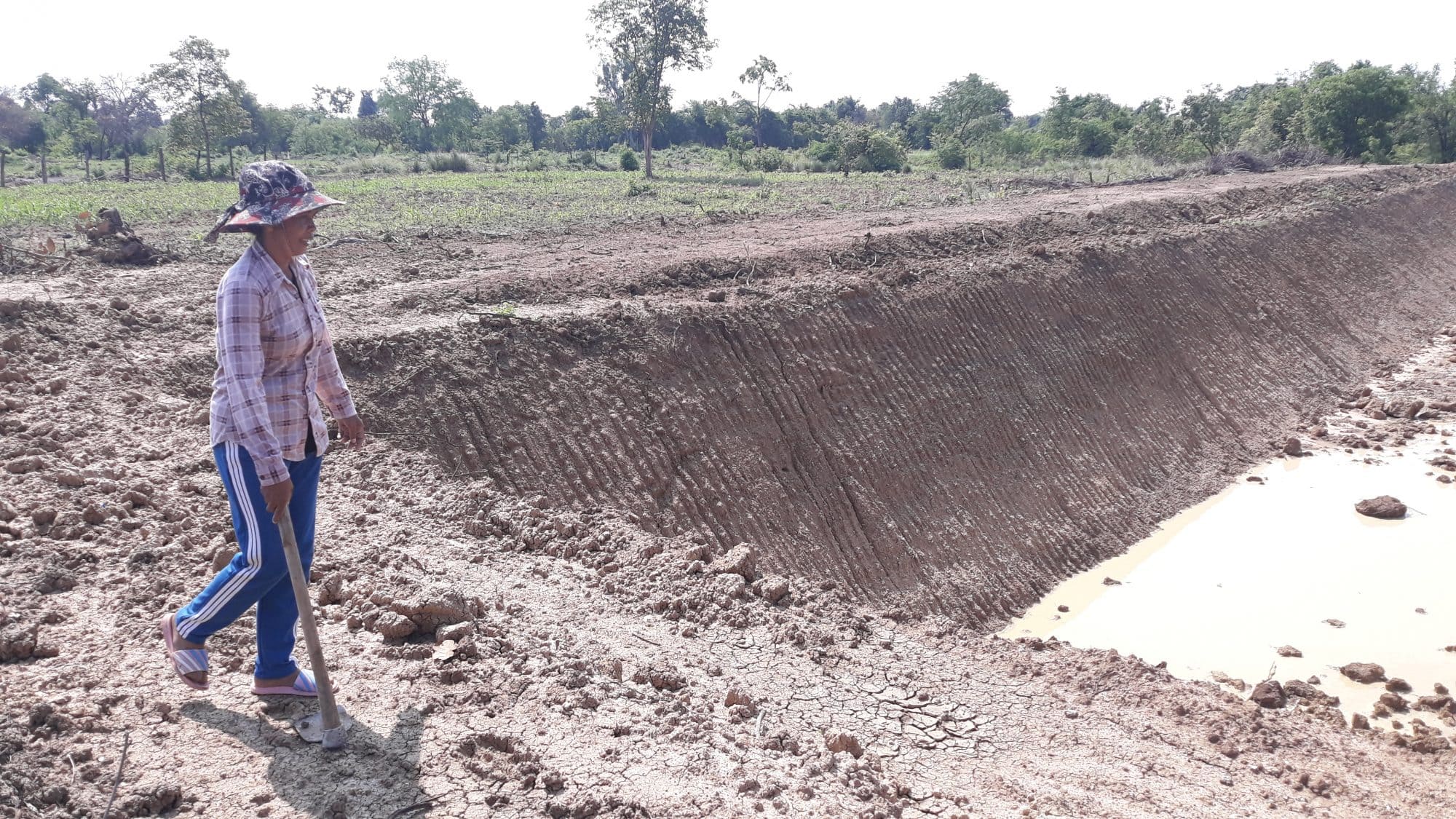PPG Project in Bosh Knour village
Number of Family: age
7 family members: father (50 years old), mother (50 years old), daughters (22, 7 and 4 years old), sons (30 and 19 years old)
History / background of the family (incl. financial, social)
The family has lived in the village of Bosh Knour for over 15 years. They own a rice and Casavafarm and take care of the cows of the neighboring family. The income earned from this is sufficient to cover the daily needs of the family. But not to give children access to the public school. The daughter must also sell vegetables for the neighboring family on the market.
How much land does the family own (total), how many m2 is the garden and how many m3 the pond?
45.580 m2, 180 m2, 5.710 m3
How has the family been impacted by the PPG project: financial, social, food & water security, etc.?
The family has been participating in the PPG program since the beginning of 2018. These include various training courses in finance, health, food safety, water hygiene and community living together. Not only the understanding of the interaction of body and environment has been sharpened, they have also experienced more security emotionally. The pond is already dug, but it will not be filled until the beginning of the rainy season. The following changes are already taking place in the family:
– self-confidence in the handling of organic food,
– social behavior: interpersonal relationships and a sense of community are created and deepened,
– hope and the chance for a better life.
Project coordinate: 12.864389, 103.080278
Date: 24. April 2018
Written by: Rithy Kong (kHA Manager)
Emergence and meaningfulness – PPG (Ponds, Pumps, Gardens) Project
The smallholders in the target area around Battambang/Northern Cambodia are highly threatened by poverty and precarious food insecurity. This is espe- cially true during the dry season. Only 56 % of the families will have enough water, which in turn means that only 6 % of families have enough food to eat all year round.
The daily work of our partner organization Bareebo with the small farmers has also shown that their diet has become very one-sided and unhealthy in contrast to the traditional diet. Deficiency symptoms can be observed especially in children. Often, this is simply due to a lack of knowledge of balanced, nutritious and varied food, and of course the lack of financial resources. In addition, countless chemicals end up in the fields and thus in the food chain.
With sufficient water storage capacity to produce high quality organic products all year round, farmers in the target area would be well positioned to increase their incomes and improve their overall quality of life.
The project targets smallholders living in six villages in the Banan district of Battambang province in northwestern Cambodia. These smallholders account for 85% of the farmers in the target area. On average, they have less than five hectares of land. Of the 1,548 families living in the villages, around 100 families (approx. 550 persons) will benefit directly from the project. 87 percent of these families say they grow vegetables, but only 2 percent of them can sell them on the market during the dry season. The income from their gardens amounts to only 13.86 Euros per year. The average household income per year is 906 Euros.
Together with the Federal Ministry for Economic Cooperation and Development (BMZ) and “Water for the World” from Austria, we launched our new major PPG project in May 2016. Therefore, we dedicated the proceeds of the fundriding tour in December 2017 to this project.
We dig up large ponds. They act as water reservoirs for farm animals and guarantee a year-round harvest cycle. The raised topsoil is mostly distributed evenly on the sides and large areas of organic land are created. The farmers are prepared for their new tasks in special training sessions. The surplus organic vegetables are bought by Bareebo at a fair and pre-determined price and sold at the organic market stall in Battambang or directly to the hotels. The surplus generated goes back proportionately to the village coffers, so that the villages become increasingly independent of the profit-oriented banks.
